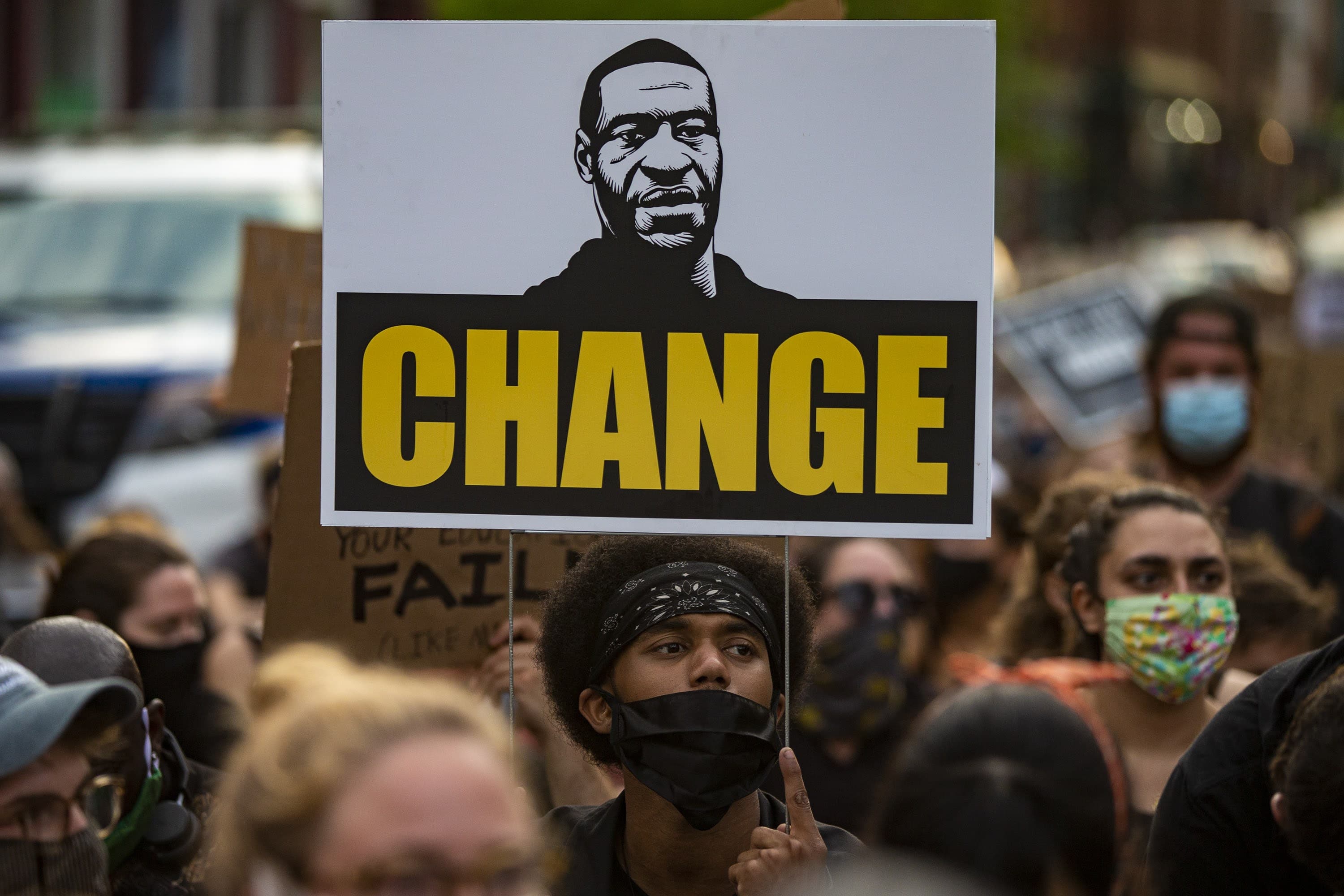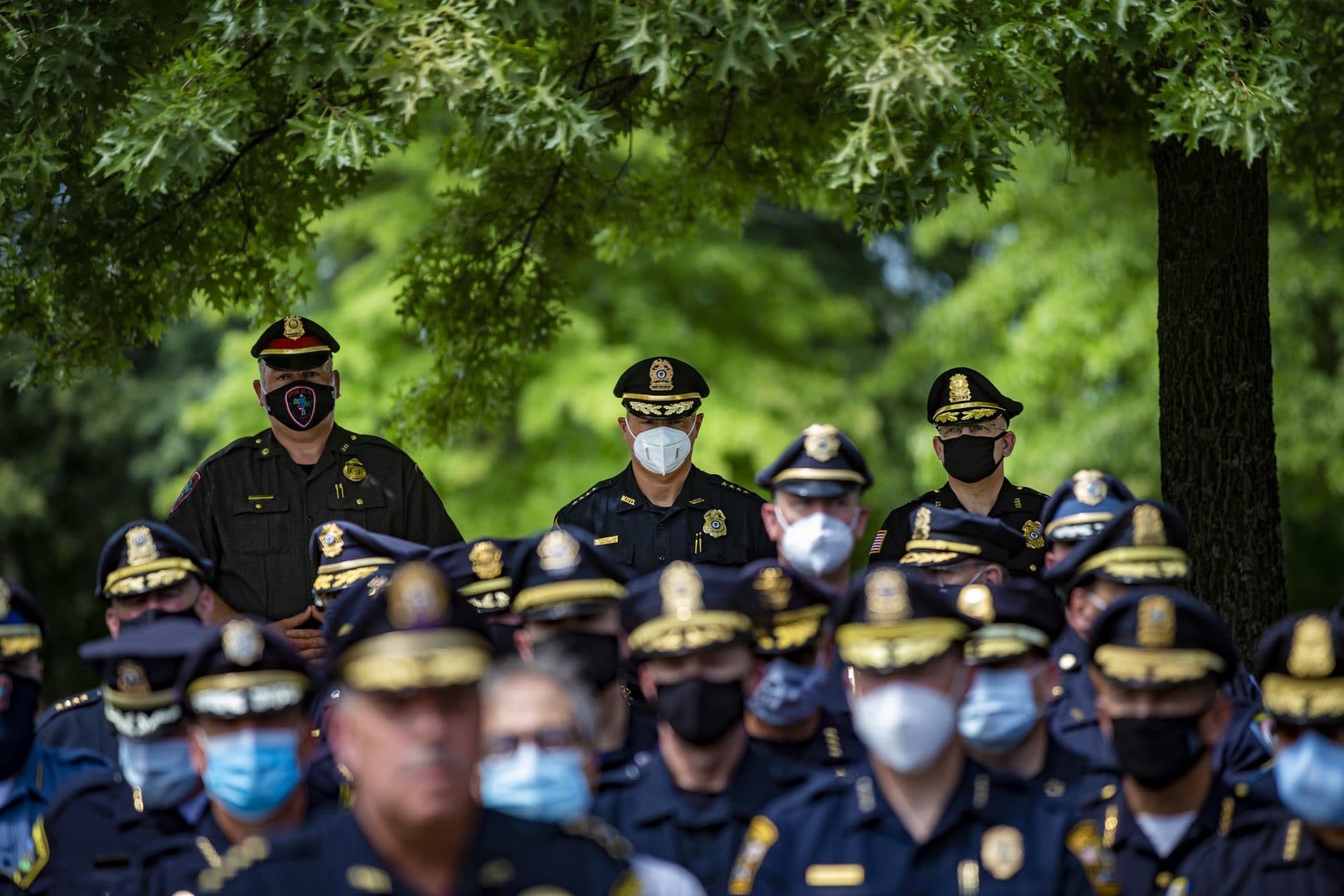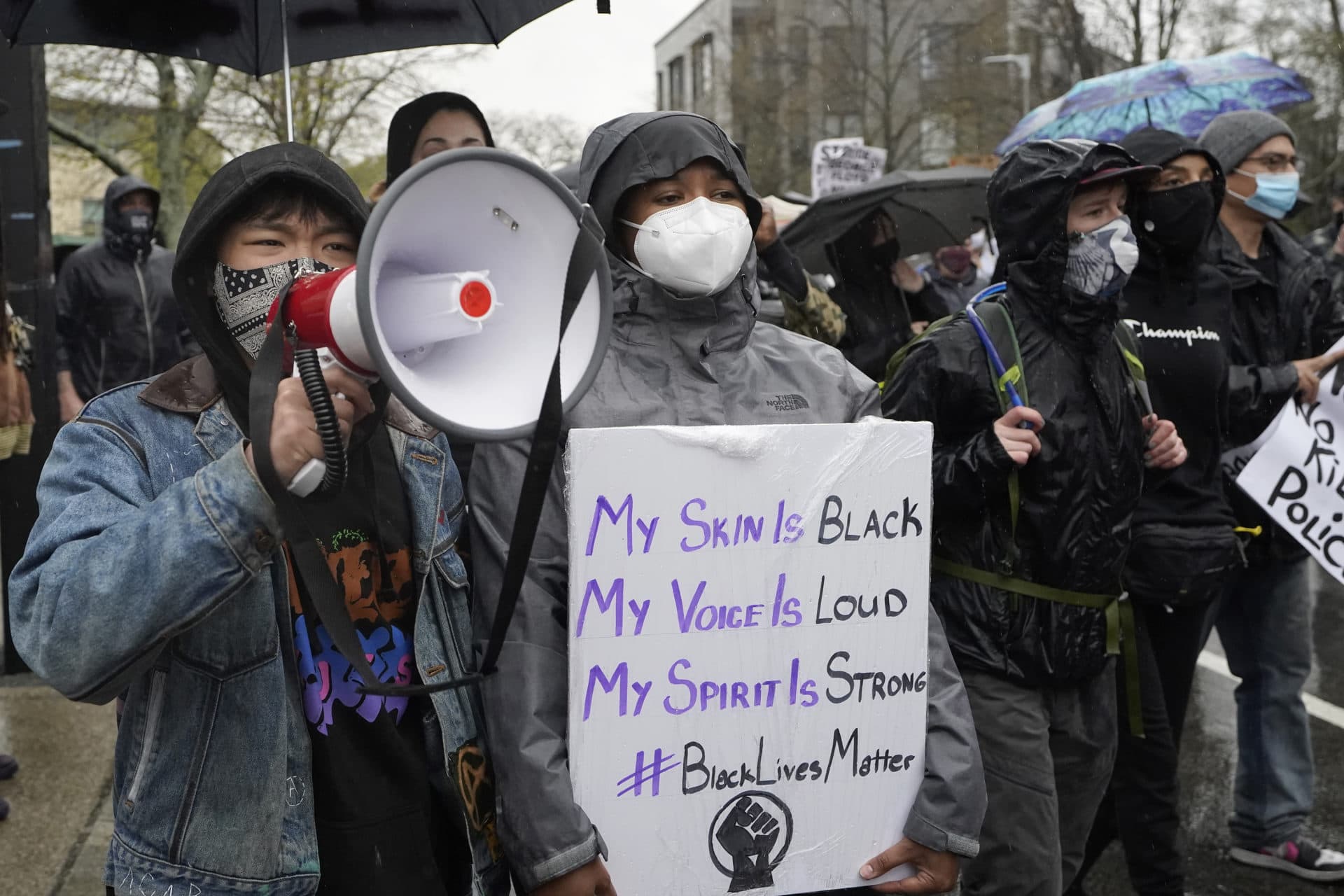Advertisement
Local leaders promised change after George Floyd's death. 2 years later, the work is unfinished

George Floyd's death two years ago sparked calls for change at police departments across the country, including in Massachusetts.
Both the state and the city of Boston vowed to increase their oversight of police officers and better address complaints after Floyd was killed under the knee of a Minneapolis police officer.
"It is particularly powerful in this moment that all of us in law enforcement recognize the cry for help attention and change," Massachusetts Attorney General Maura Healey said in 2020.
But today, the efforts largely remain a work in progress. And some activists say much more needs to be done.
"Reforms have been implemented at a much slower pace than I would have hoped for," said activist Jamarhl Crawford, who served on the Boston Police Reform Task Force. "Two years ago, police reform was first and foremost on people's minds, but now I think some of that enthusiasm and fervor has waned."
The Boston task force was an 11-member group appointed by then-Mayor Marty Walsh. In 2020, it issued recommendations and created an independent watchdog agency with subpoena power to investigate use of complaints. But so far, a year after its creation, Boston's Office of Policing Accountability and Transparency has reviewed only a handful of cases.
"Two years ago, police reform was first and foremost on people's minds, but now I think some of that enthusiasm and fervor has waned."
The task force also recommended that Boston police develop use of force and officer discipline policies, diversify the force and expand the use of body cameras.
On the state level, the largest reforms were the result of a massive police reform bill passed by the Legislature in late 2020.
Among the reforms was the creation of the Peace Officer Standards and Training (POST) Commission. That panel will certify all Massachusetts police officers and has the power to decertify them. The nine-member group, consisting of police officers, lawyers and mental health clinicians, will review documents from officers and their supervisors to determine whether officers meet the requirements to be certified. An officer has to be recertified every three years.
There has been some pushback from law enforcement, with some questioning the authority of the POST Commission and the type of information it requests from officers. Some officers have said their concerns are not being addressed and people without a law enforcement background are determining whether they can properly do their jobs.
Advertisement

During a meeting last week, commission member and Boston Police Patrolmen's Association president Larry Calderone asked whether an officer could be denied certification because of misconduct charges that were already adjudicated or resolved by their departments.
"If an officer is accused of something and exonerated, it should never get in front of the commission to begin with," Calderone said. "We need to clarify this. It sounds like double jeopardy to me."
The Commission's general counsel said POST has the power to render the ultimate decision on officer certification and can make decisions after reviewing patterns in an officer's behavior.
At the meeting, commissioner Hanya Bluestone, a psychologist, said the group's purpose is to involve a variety of people from different backgrounds to consider whether an officer should continue to have a badge and carry a gun.
"What I hear is a lot of fear and concern about us not understanding the law enforcement culture," she said. "Many of us are not law enforcement officers, obviously we did not go through the same credentialing process. But we all did go through a rigorous process to be appointed to this commission and we take it very seriously."
The POST Commission is also creating a public database of complaints against officers, but the start of that has been delayed for a few weeks.
Another delay could come from two lawsuits filed by police union members. One suit charges the POST Commission with open meeting law violations. The other takes issue with a questionnaire that officers must complete by this summer to help POST examine their moral character.
Even some of those who support much of the officer certification process say the questionnaire is controversial. It asks about things such as legal action against an officer, whether an officer is current on their taxes and whether an officer's online communications could be perceived as biased.
Although he agrees with the certification process, Lawrence Police Chief Roy Vasque, vice president of the Massachusetts Major Cities Chiefs of Police, said the questionnaire is controversial and "has caused pain."
"They want us to define 'fit for duty,' they want us to define 'moral character,' and everybody's interpretation of what those things are could be different," Vasque said. "But everything will be out there for the public to see and the hope is that they'll find the majority of the police officers in the commonwealth of Massachusetts are doing a great job."
Vasque said some officers have been discouraged by the policing debate. As a result, he said, recruiting and retaining officers has been more difficult over the past two years, but he's hopeful that will change once certification is a standard part of the job.
While some certification details still need to be worked out, state Sen. Will Brownsberger said lawmakers have taken the right approach with reforms and the entire state will benefit from the POST Commission's work.
"Within a period of a few years, as you know, they straighten out all the confusions and the questions and start to really do their job, they're going to follow through," Brownsberger said. "My hope and belief is that within five or 10 years around the state, I think police are going to feel more respected because they'll know that the bad apples are being weeded out. And I think the public will have a higher sense of confidence as well."
Area clergy members said what's important is that the conversations about policing continue — without people taking to the streets.

Rev. Willie Bodrick, pastor at the Twelfth Baptist Church in Roxbury, held healing services after former Minneapolis police officer Derek Chauvin was convicted of Floyd's murder. Bodrick said there's still a lot of pain in the community and more dialogue is needed about how policing serves the community.
"We need to really engage to make sure that we find a pathway forward, to ensure that we are addressing all of the issues so that we have a clear understanding of, what does accountability look like? What does transparency look like?" he said. "I hope that everyone can come to the table to help us mend the great brokenness that has been present between communities and our law enforcement."
This article was originally published on May 25, 2022.
This segment aired on May 25, 2022.
